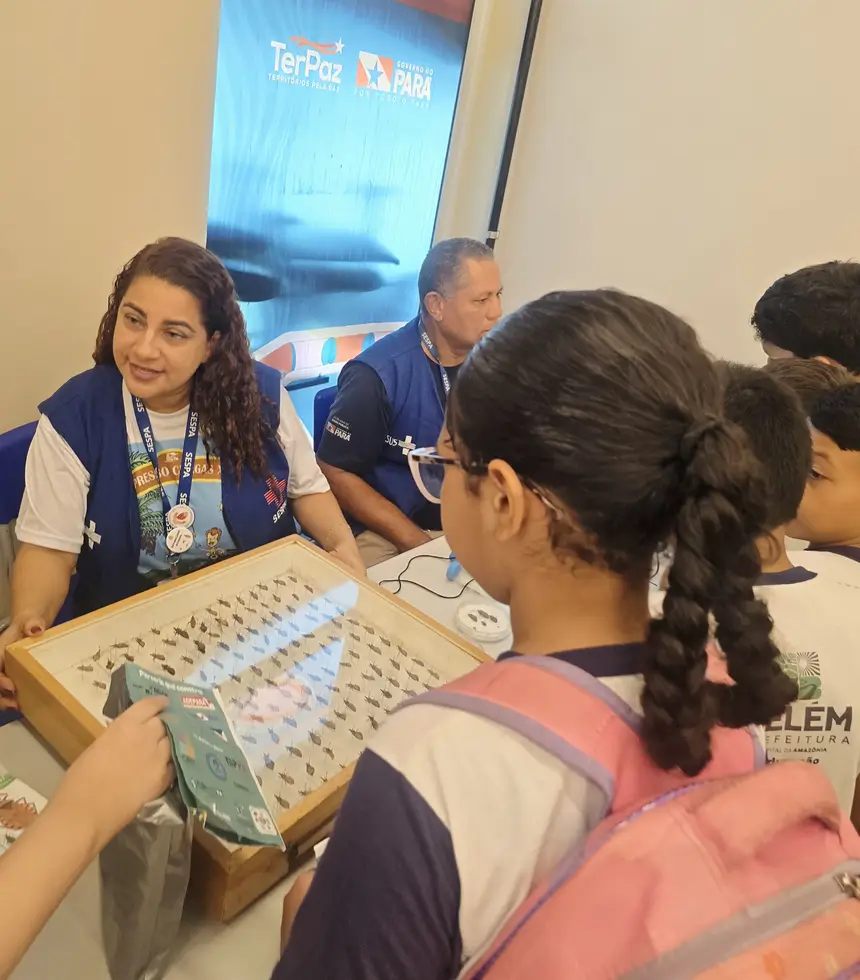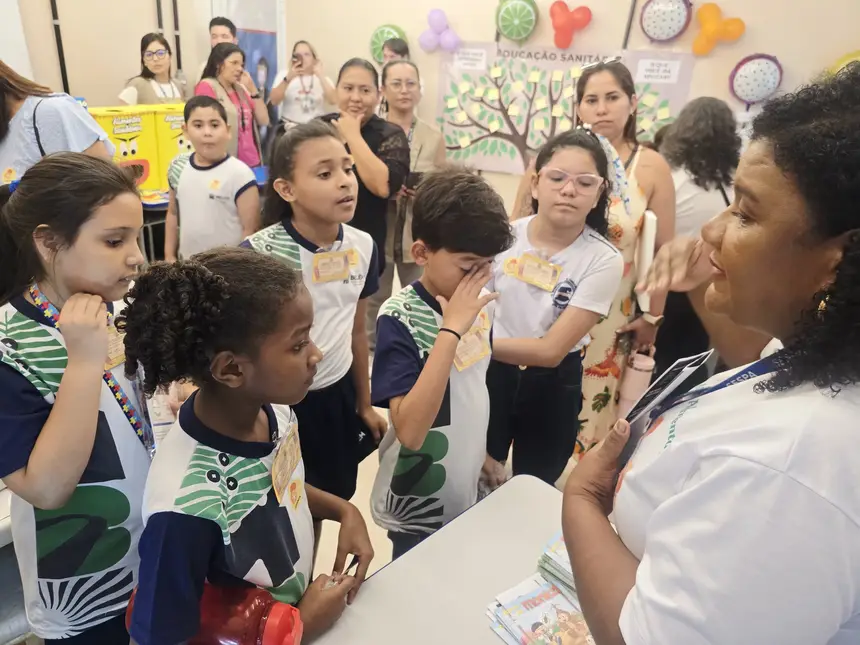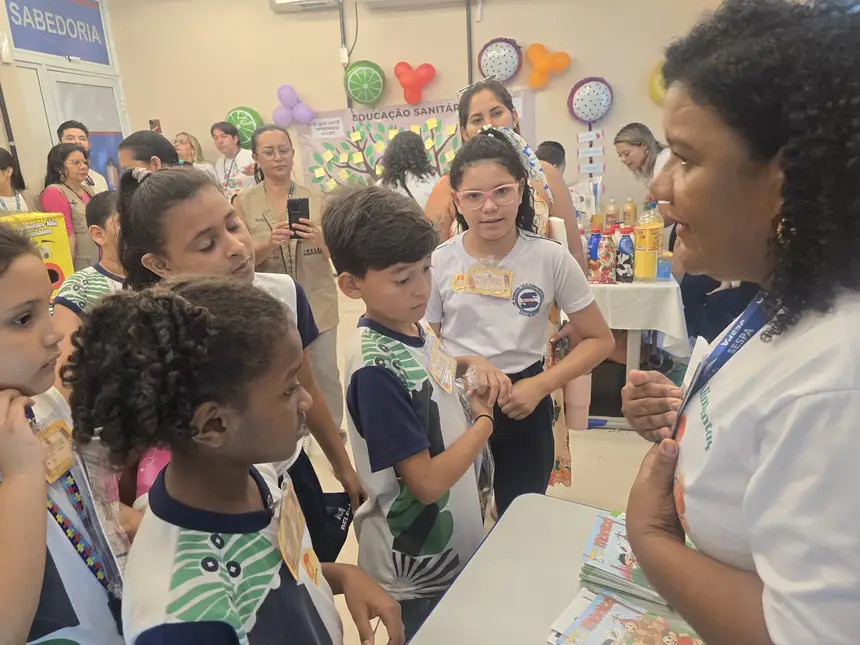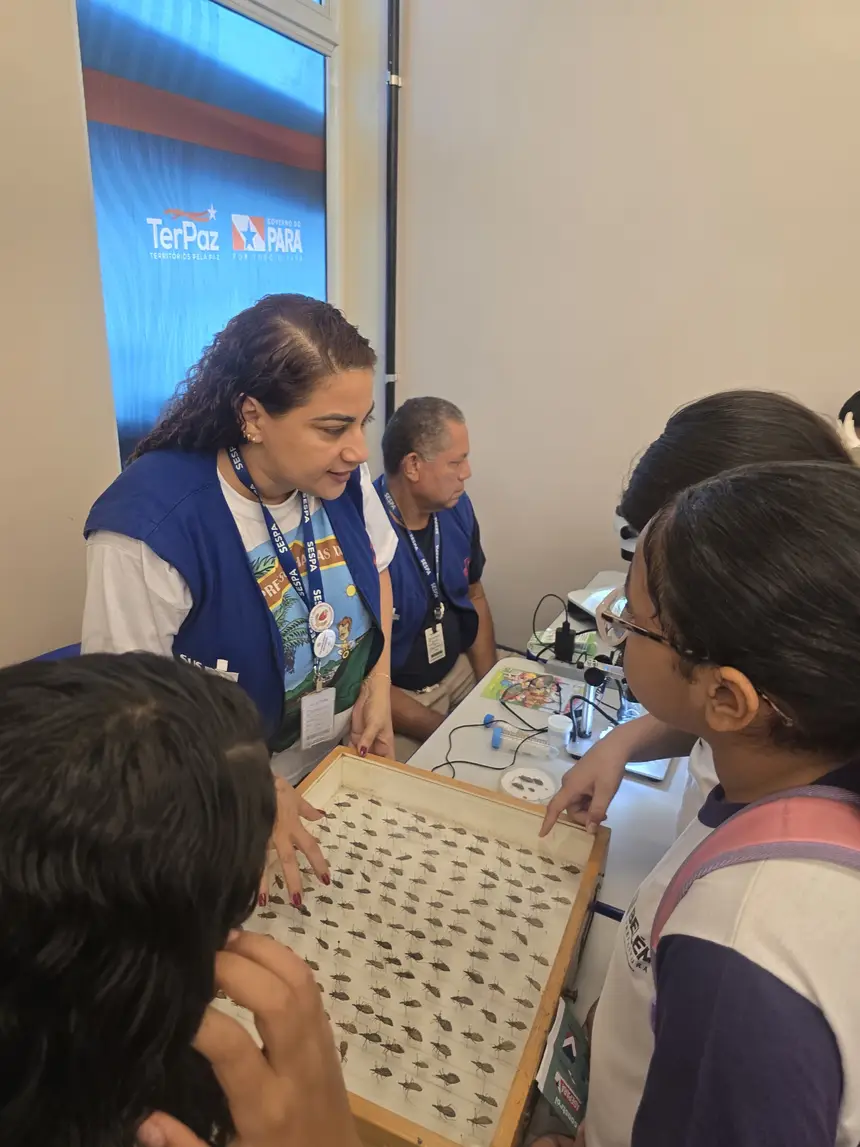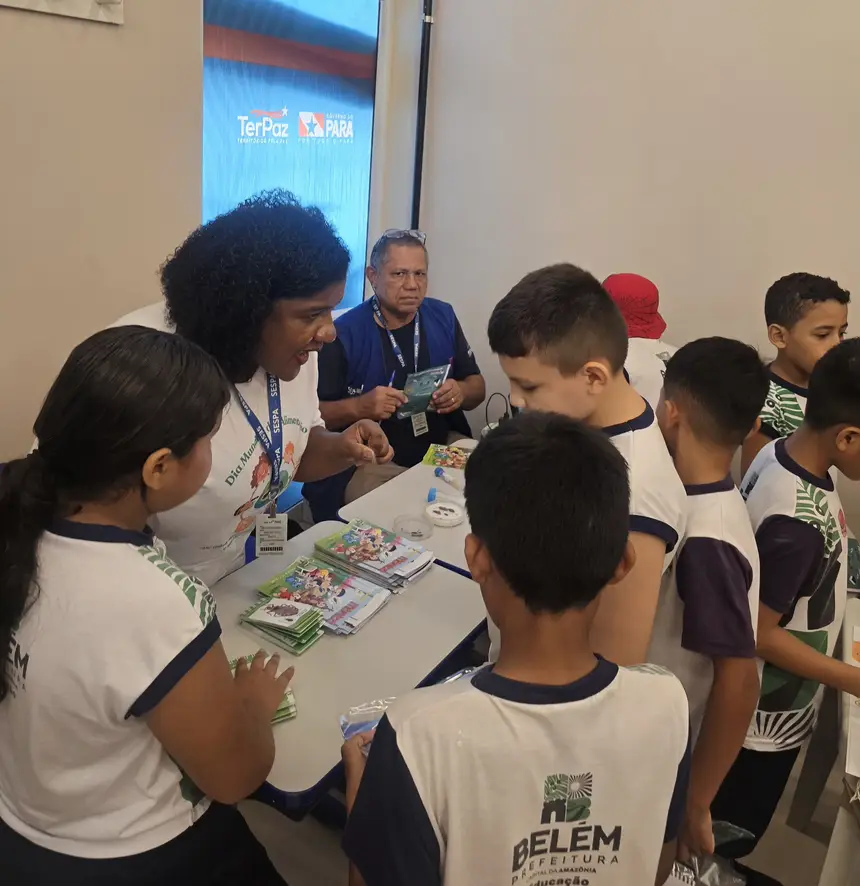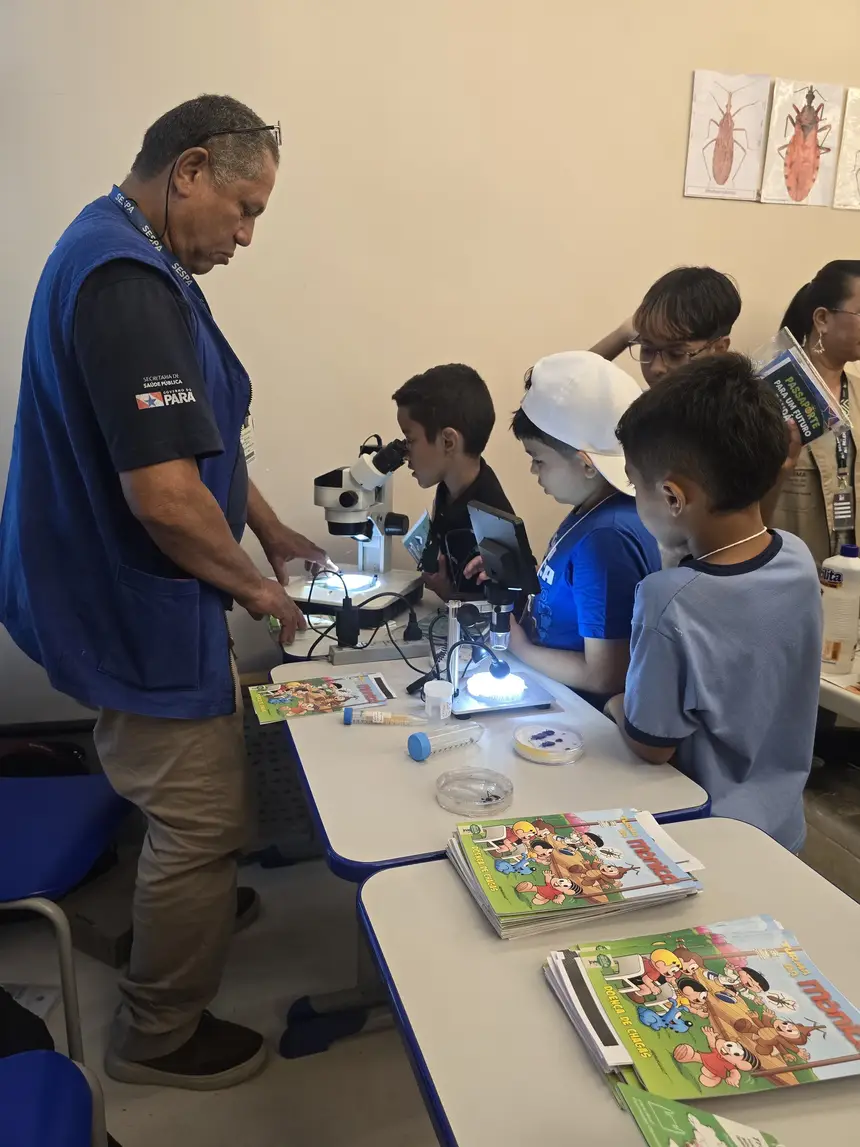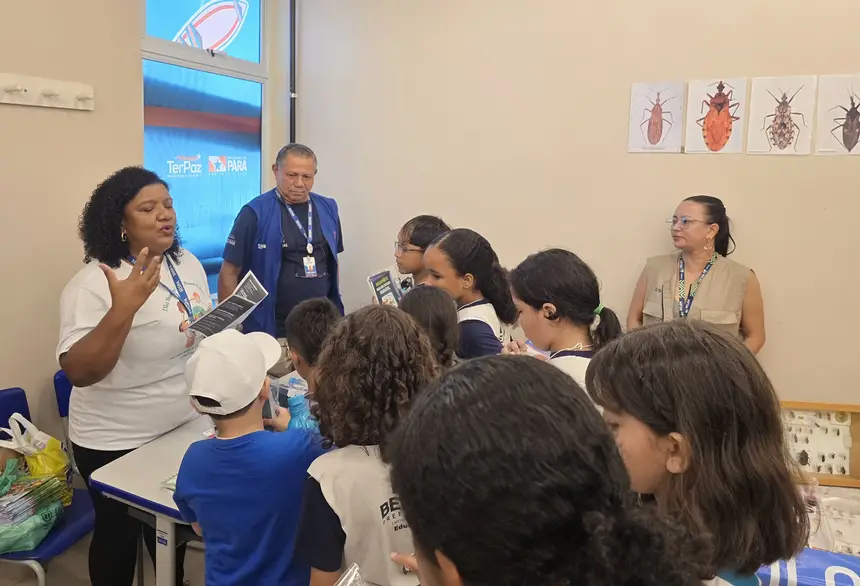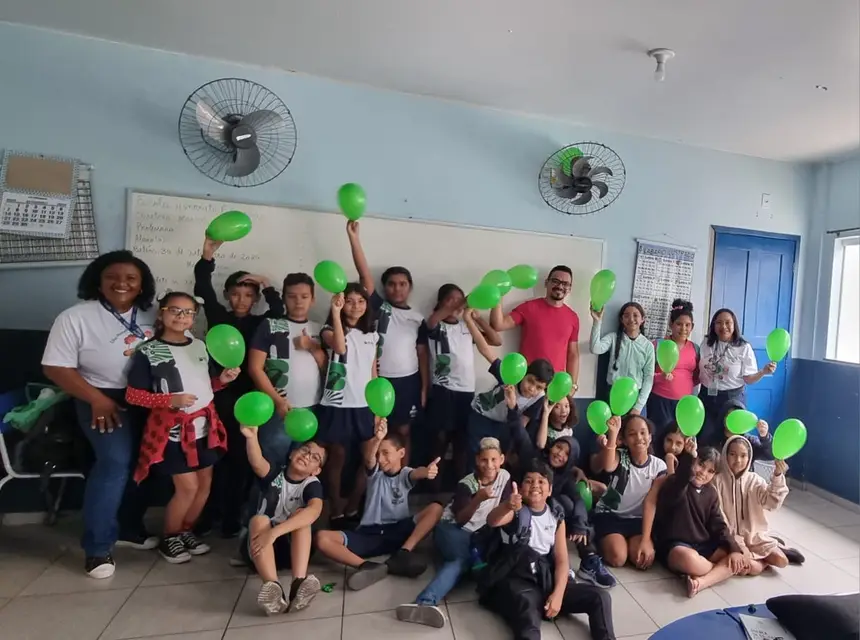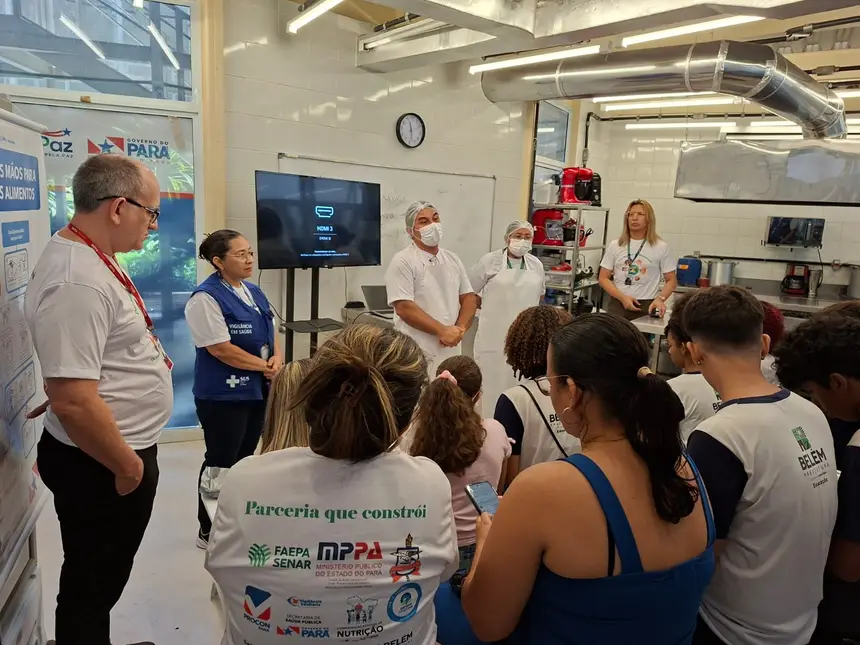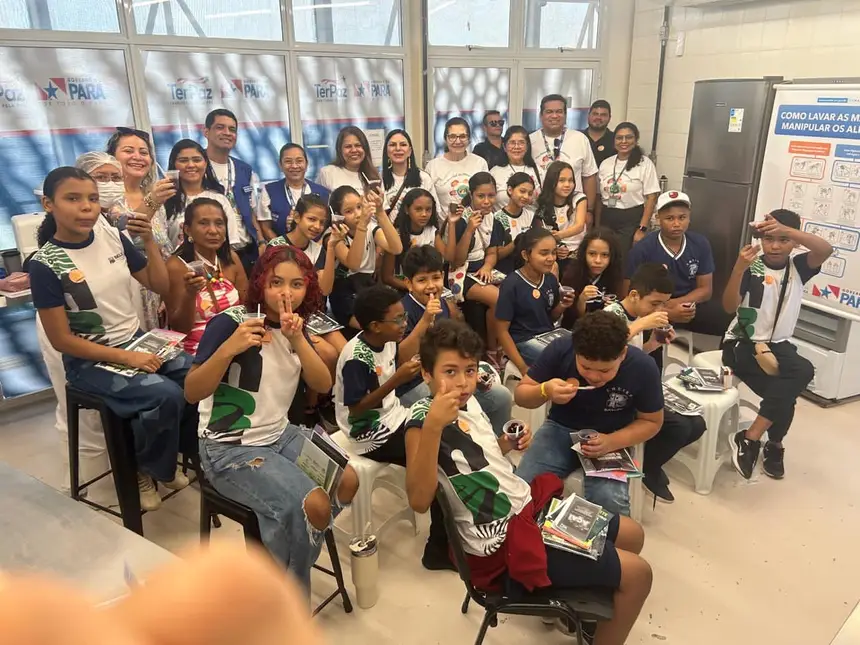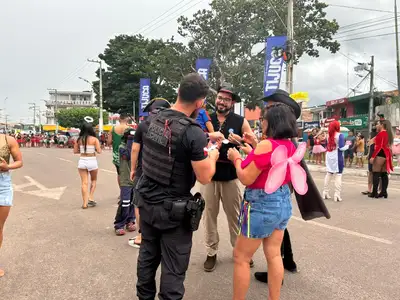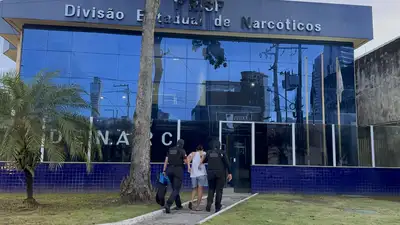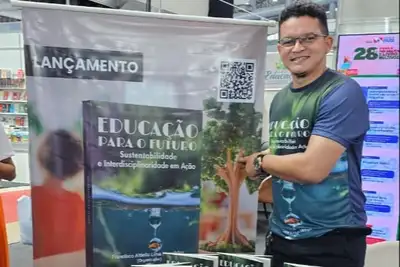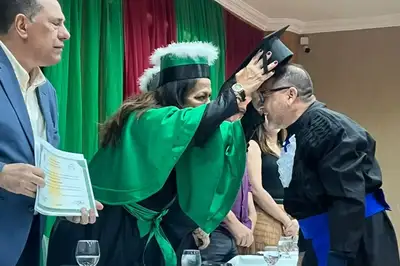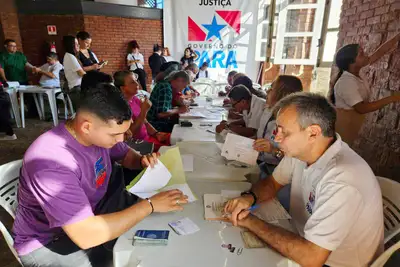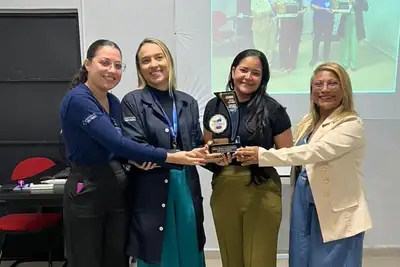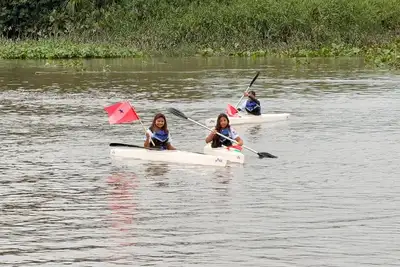Sespa participates in the "Healthy Eating" project and reinforces educational actions on safe consumption of açaí in schools in Belém
Action commemorating World Food Day in partnership with the Consumer Defense Center of the Public Ministry of Pará involved students, health professionals, and educators at the Usina da Paz in Guamá
Focusing on promoting healthy eating habits and raising awareness about the safe consumption of açaí, through good practices as a strategy to minimize the risk of oral transmission of Chagas Disease, the State Department of Public Health (Sespa), through the State Department of Sanitary Surveillance, the State Coordination of Chagas Disease, and the Coordination of Entomology, participated in the "Healthy Eating" project, developed in municipal schools in Belém and concluded last Saturday (4), at the Usina da Paz in Guamá.
The action began with the training of school lunch staff from the municipal network, promoted by the Sanitary Surveillance of Belém with the institutional support of the Public Ministry of Pará (MPPA), which has been expanding qualification initiatives for food handlers. According to the agency, more than 560 school food professionals participated in training sessions related to World Healthy Eating Day, reinforcing the commitment to food and nutritional safety in public schools.
Continuing the project, Sespa held educational lectures at E. M. Honorato Filgueiras and E.M.E.F. Profª Amália Paugartten schools, located in the Jurunas and Guamá neighborhoods. The activities were conducted by Vera Salgado from the state coordination of Chagas diseases and Dorilea Pantoja from the State Department of Sanitary Surveillance, focusing on good handling practices, proper food hygiene, and the prevention of oral contamination of Chagas Disease, especially related to the consumption of açaí.
During the presentations, the teams emphasized the role of children as multipliers of good practices in the family environment. "Training lunch staff and guiding students is a way to multiply knowledge. When children learn to recognize the importance of hygiene and proper food handling, they become active participants in promoting health," highlighted Dorilea Pantoja, a technician from the State Sanitary Surveillance.
Playful activities and interactive learning
The project's conclusion took place at the Usina da Paz in Guamá, bringing together children, families, and health and education professionals for a morning of educational and recreational activities with the participation of various agencies and institutions. The program of the State Sanitary Surveillance included hand hygiene dynamics with glitter, tasting of bleached açaí, and the screening of a video on the safe processing of açaí, in partnership with the Casa do Açaí in Belém and SEDAP.
The Entomology Coordination of Sespa, represented by Sonia Maria and Gilberto Barbosa, participated in the action with an interactive demonstration about Chagas Disease, in partnership with the State Coordination of Chagas Disease. Children were able to observe the triatomine bug, the insect that transmits the disease, through educational microscope materials. According to Eder Amaral, State Coordinator of Chagas Disease, this direct contact facilitates learning and strengthens prevention. "By understanding how the triatomine behaves and where it may be present, children practically assimilate the importance of prevention and food safety," he explained.
Integrated work for food safety
The "Healthy Eating" project integrates the actions of the Food Security Working Group (GT Food Security), of which Sespa is a part, bringing together state and municipal institutions around the promotion of health, nutrition, and sanitary surveillance.
The initiative reinforces Sespa's commitment to act in an educational and intersectoral manner, bringing the theme of food safety closer to the school community. Through playful, informative, and preventive activities, the project contributes to forming more conscious consumers and strengthening the culture of safe eating in Pará.


